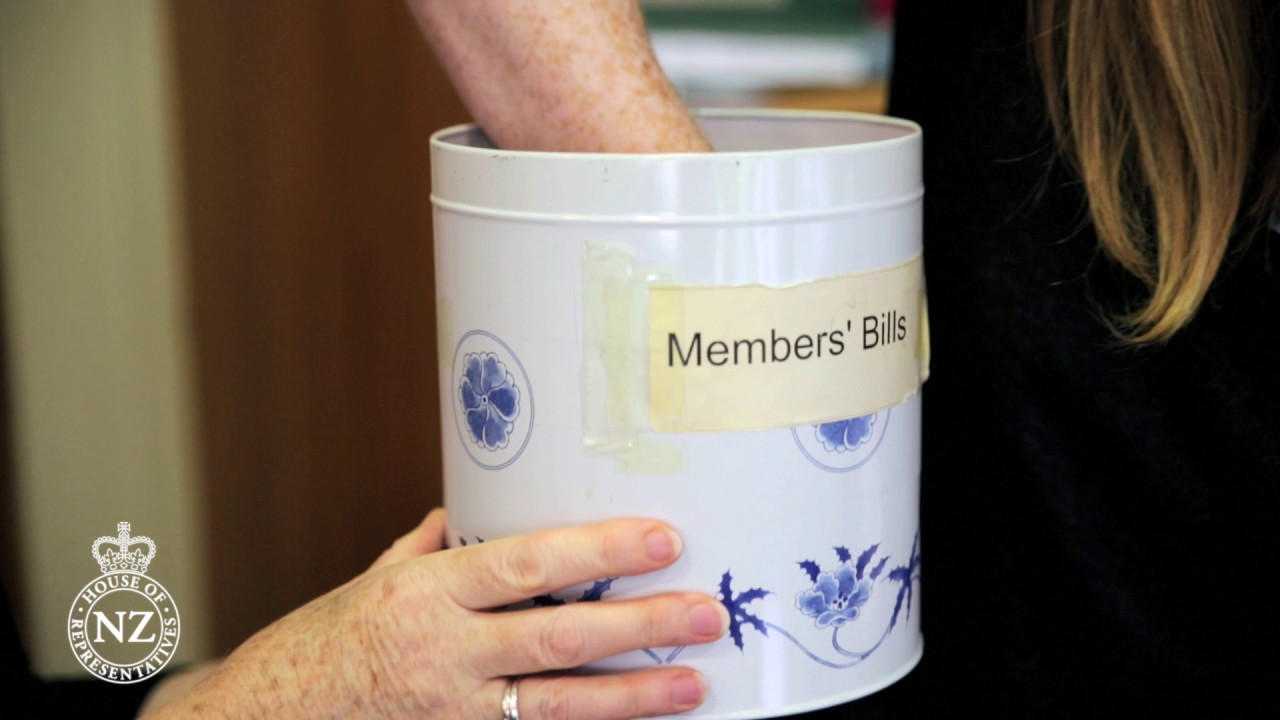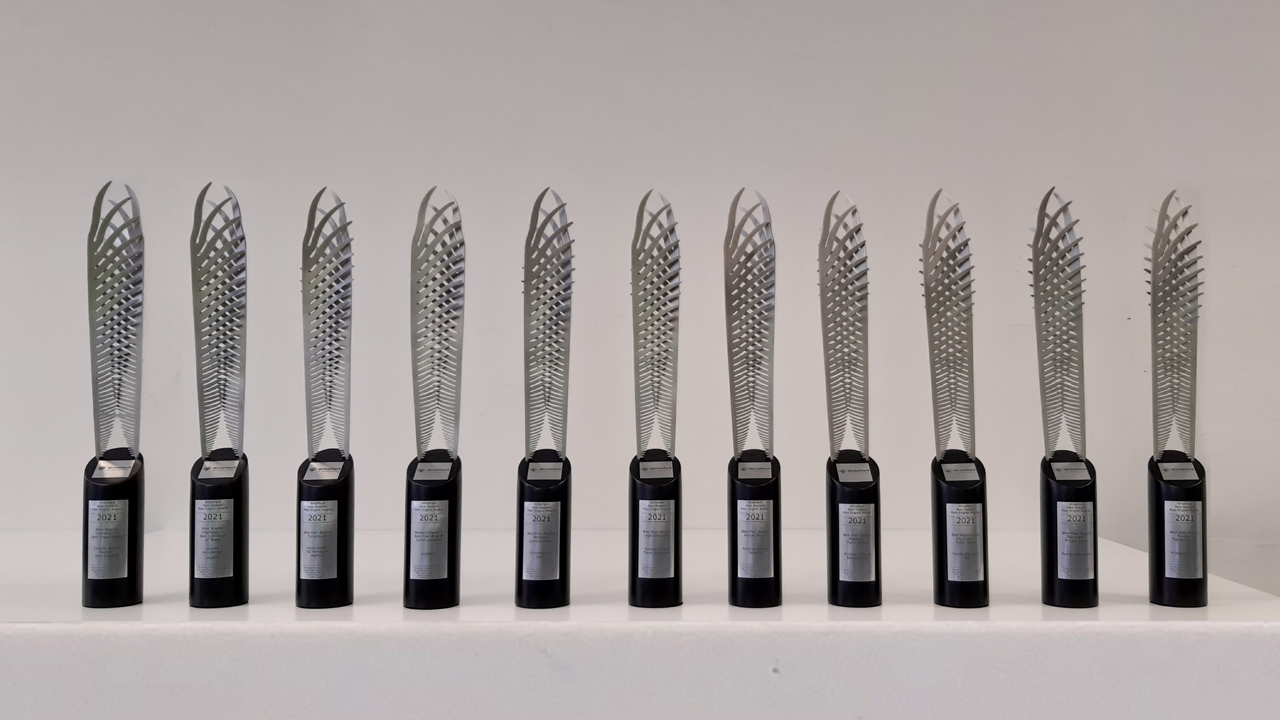
Shine the light on clear communication | Photo of colourful lights and reflections on Whairepo Lagoon by Ann Kilpatrick on Excio
Write and its sister company WriteMark are the founding sponsors of the Plain Language Awards — raising the bar for clear communication in New Zealand, and now in Australia too. Both Write and WriteMark are continuing their support for the Awards in 2022 as major sponsors.
Write chief executive Lynda Harris sees sponsorship of the Plain Language Awards as another way Write can champion the positive impact that clear communication has on people’s lives.
Lynda says:
We support the Awards because they celebrate clear communication in business and government organisations. Everyone who enters the Awards, or who nominates a People’s Choice entry, is doing their bit to make the world a clearer place.
We believe that everyone in the community has the ethical and democratic right to understand communications that are central to their lives — government forms, legal documents, financial applications and agreements, terms and conditions, and more.
Ultimately, we want people to be able to understand important information. When that information is as clear as possible, they can make decisions more easily — especially those related to health, financial, and legal matters.
Let’s get the plain language message out
The Awards celebrate the communicators who create clear, accessible documents and websites. And in doing so, the Awards help to share the message that we all benefit from plain language in everyday life.
Plain language enables us all to participate more easily in society and make important legal, financial, and health decisions based on better understanding. That’s got to be a good outcome!
Check out the Awards categories for 2022
Are you willing to join the call for clear communication?
A plain language approach to communication means truly committing to putting customers and colleagues first — a culture-changing shift in how business and society operate. Our sponsors are joining the call for fairer, clearer communication from all sectors.
If you’re interested in supporting the 2022 Plain Language Awards, please get in touch. We’d love to hear from you and have you on our team.
Meet our sponsors
Become a sponsor
Anne-Marie Chisnall May 30th, 2022
Posted In: 2022 Plain Language Awards, Sponsors
Tags: clear communication, People's Choice Awards, Plain Language Awards, sponsors, Sponsorship, Write Limited, WriteMark

It's time for clarity! Tell your friends and colleagues that the Awards are open for entries | Photo of tūī by Mark Trufitt on Excio
It’s time for clarity! Entries are now open for this year’s Awards in all categories. As we’re sure you’ll agree, the Awards have a category for almost every type of business writing.
From macro to micro
Perhaps your plain language project has been running for a while and you’re now ready to enter the premier Plain Language Champion — Best Organisation category. Or you might be starting small by entering the Best Plain Language Sentence Transformation.
From jargon-filled to easy-to-read
Have you turned a document or website from gobblydegook into something clear, concise, and jargon-free? Produced a shining example of anti-legalese that your clients love? Or dazzled your stakeholders with an awesome annual report that ticks all the reporting boxes?
Our judges are looking forward to seeing outstanding examples that defy the stereotypes of legal writing and business jargon.
From individual to team contributors
Technical communicators — get ready to send us your portfolios! Plain language project teams and individuals — prepare your submissions! We’re keen to celebrate your work whether it’s behind the scenes or front and centre in your organisation or sector.
From transformation to celebration
Another category the judges always love is the Best Plain Language Turnaround — especially if the turnaround was inspired by a Brainstrain nomination in previous years. And members of the public are welcome to nominate examples of the Best Communication or the Worst Brainstrain for the People’s Choice Awards.
You’ll find lots of inspiration in the statements from our 2021 winners and finalists. And plenty more on the gallery page where we showcase video stories of plain language initiatives.
Meet our 2021 winners and finalists
Get inspired by the stories in our gallery and share your own story
Entries are open until 31 July, so start planning your entry now. Once again we welcome entries from both New Zealand and Australian-based organisations.
Choose your categories for the 2022 Awards
Get involved with the People’s Choice Awards
Read about the benefits of sponsoring the Awards
Sign up to our newsletter for the latest news
Anne-Marie Chisnall May 12th, 2022
Posted In: 2022 Plain Language Awards, Communications, Story theme
Tags: Best Legal Document, Best Organisation, Best Plain Language Annual Report, Best Plain Language Document, Best Plain Language Legal Document, Best Plain Language Turnaround, Best Plain Language Website, Best Sentence Transformation, Best Technical Communicator, Brainstrain, jargon-busting, People's Choice, Plain Language Champion, transformation

The Plain Language Bill starts its journey | Photo by Sulthan Auliya on Unsplash
The Plain Language Bill is being considered by the New Zealand Parliament. If the bill becomes law, it will require all government agencies to communicate in plain language.
Below you can read the submission made by the WriteMark Plain English Awards Trust to the Governance and Administration Select Committee.
The WriteMark Plain English Awards Trust advocates for the use of plain language in all documents that affect our ability to participate and function well in New Zealand society.
The Trust achieves its purpose primarily through running the annual Plain English Awards, which aim to:
- improve government and business documents so that all New Zealanders can understand them raise public awareness of the need for, and benefits of, plain language
- create a public preference for organisations that choose to communicate in plain language.
What is plain language?
Plain language (sometimes called plain English in New Zealand) is a style of writing in which the language, structure, and presentation of a document all work together to help the reader. A document written in plain language is easy to read, understand, and act on after just one reading.
30 March 2022
Governance and Administration Select Committee
Parliament Buildings
Submission in support of the Plain Language Bill
Tēnā koe
The WriteMark Plain English Awards Trust strongly supports the Plain Language Bill. This submission sets out our reasons and offers some suggestions to make the bill even more useful.
Why we support the bill
Over the past 17 years our interactions with public and private sector organisations, and members of the public, have given us an insider’s view of how language quality affects organisational outcomes and citizens’ lives. We can say unequivocally, that much public sector writing falls far short of the label ‘plain’. Many documents are unclear, lack a human-centred approach, and do not fulfil their purpose.
So, we strongly support any initiative to improve the quality of public-facing government documents. Our view is coloured by both the negatives mentioned below from the People’s Choice category and, conversely, by surveys that capture the real-world impact of excellent documents.
The public speak — evidence of harm and frustration from poorly written documents
In particular, documents and websites nominated in the People’s Choice Worst Brainstrain category emphasise the degree of harm and frustration, not to mention the waste of time and resources, created by poor writing.
A high proportion of the nominations in the Brainstrain category are complaints and concerns about communications from government agencies. They document the damage, frustration, and stress caused by unclear or misleading information, forms, and policies.
Just a few examples of government agencies ‘dobbed in’ by the public include the Reserve Bank, Inland Revenue, Commerce Commission, Ministry of Education, Department of Internal Affairs, Parliamentary Service, Earthquake Commission, and the (then State) Services Commission.
In many of the Brainstrain category nominations, we hear the real-world stories from people who were not served well by their government. They missed a deadline, couldn’t access a health service, missed out on the right benefit, underpaid tax, or didn’t apply for a government job — all because they didn’t understand, or they misunderstood. Most of these cases paint a picture of members of the public feeling vulnerable, disillusioned, and unheard.
Applying lessons from the good
Of course, the Plain English Awards are mostly about celebrating the good. We see outstanding examples of plain language every year and applaud those government agencies who write for the public with clarity and empathy. What would happen if all agencies wrote to that high standard? What if excellence were the norm?
Those agencies that write well give us a glimpse of what the Plain Language Act could achieve. Based on the outcomes noted on the entry forms of category winners, we’d see a positive transformation in writing quality inside government agencies. This shift would in turn result in a positive change in public perceptions.
In government agencies we’d see:
- significant efficiencies in producing documents, saving time and salaries
- greater ability to meet deadlines, with a better-quality result
- fewer misunderstandings
- more coherent, better planned messaging — getting it right the first time
- less time and angst answering the public’s queries because confusion has been removed
- less time editing or reworking colleagues’ documents that fall short of the basic standards of plain language
- less money being wasted on civil servants having to learn new ways of writing every time they move departments
- the likelihood that government ministers would drop their personal preferences that cost so many writers so much time.
We’d also see:
- easier working lives and greater job satisfaction for ministers and civil servants alike — this means reduced stress, fewer sick days, few resignations, and reduced likelihood of unmotivated workers
- a recognisable government style that is clear, human, and helpful.
For members of the public, we’d see:
- people feeling empowered to access the information they need
- more equitable access to information because people can find and understand the information they need
- reduced need to contact agencies to clarify information or instructions
- greater trust and confidence in government communications
- an observable humanising of tone, even in communications from regulatory agencies.
Additionally, businesses and other organisations would gain a touchstone for what good writing looks like — an impact that cannot be underestimated.
Recommendations to take the bill further
We have two recommendations to increase the impact of the bill and reduce the cost of administration across government agencies.
Include a plain language standard to clarify expectations
The Plain English Awards are based on the aspiration of writing to a high standard. Indeed, they take their name from standards-based sponsor WriteMark. Therefore, we highly recommend that the bill require government agencies to adopt a short and achievable writing standard such as the freely available and customisable Write Plain Language Standard.
We understand that this useful standard is already widely used and adapted by many New Zealand government agencies, plus a number of organisations internationally. Providing agencies with a documented standard makes expectations clear and avoids duplicate effort across the public sector.
Include consequences for non-compliance
The bill has so much potential to improve the effectiveness and reputation of government. But we are concerned that it may have much less impact if there are no meaningful consequences for failing to implement it. Our contacts in the US plain language movement tell us that the US Plain Writing Act was quite effective at first, but became much less so over time as agencies realised nothing would happen if they did not comply.
Thank you for the opportunity to comment.
Gregory Fortuin
WriteMark Plain English Awards Trust
Anne-Marie Chisnall May 5th, 2022
Posted In: 2022 Plain Language Awards, Clear communication, Communications
Tags: clear communication, democracy, government communication, plain language, Plain Language Bill, writing for the public

It’s time for clarity like these crystal clear reflections at Lake Dunstan, Bendigo in Otago, New Zealand | Photo by Stewart Watson on Excio
With entries for the 2022 Awards opening very soon, we’ve been making a few changes at Awards Central!
Welcome to our new Awards coordinator
First of all, we welcome our new Awards coordinator, Shelly Shah, to the Awards Working Group. Shelly will be helping us with all aspects of the 2022 Awards — from organising the entry process and confirming sponsors and judges, right through to coordinating the Awards ceremony in late October. You’ll hear more from Shelly as we move through the various phases of the Awards.
Write Limited is proud to sponsor the Awards and provides administrative support as part of its sponsorship.
New year, new name
Have you noticed a slight change in our branding? Yes, the Awards are now called the Plain Language Awards.
Some of you commented in the survey at the end of 2021 recommending this change. Like you, we hope that changing the name of the Awards will make the event even more inclusive. And our trustees agreed unanimously with the proposal.
Changing the name of the Awards reflects the general shift to talk about ‘plain language’ in many community and business contexts, rather than ‘plain English’. You’ll have noticed that the Plain Language Bill that’s going through New Zealand’s Parliament also uses ‘plain language’ in its title!
The term ‘plain English’ is still relevant in international contexts when we wish to talk about plain English contrasted with, for example, plain Japanese or plain Spanish.
Awards founder Lynda Harris says:
We’ve been keen to update the name of the Awards for some time. But we knew we’d have a lot to do even though we’re only changing one word! We decided to make it happen for 2022. The Awards have been running for an incredible 17 years and this change feels like a fantastic refresh of our brand!
Awards patron Chloe Wright says:
‘Language’ is so relevant to today.
Our fabulous designer and long-term sponsor, Craig Christensen of Graphic Solutions, has been working his magic and is updating our branding elements and the website.
Thanks for your feedback on the 2021 Awards
Thanks to everyone who replied to our survey with their feedback. You can read the results of the survey on our website. Overall you thought the online ceremony worked well, enabling more people to join from around New Zealand and the rest of the world. And it’s great to hear that you agree the Awards are still making a difference!
Find out what people said about the Awards in 2021
Anne-Marie Chisnall May 4th, 2022
Posted In: 2022 Plain Language Awards, Communications
Tags: Industry awards, plain language, Plain Language Awards, sponsors

We’re excited to announce the Plain Language Awards are running again in 2022 | Photo by Joshua Hoehne on Unsplash
We’ve been a bit quiet lately, but the rumours are true! Once again we’ll be celebrating Australia and New Zealand’s clearest business communicators at the 2022 Plain Language Awards. So it’s time to start thinking about your entries.
Check out last year’s finalists and winners for inspiration
Get your entries ready to send in between 1 May and 31 July. The categories will be the same as last year’s.
Read about how to enter the 2022 Awards
Check the Awards categories for 2022
This year’s Awards theme is telling your plain language story. Inspire others and be inspired!
View plain language stories in our gallery
An exciting year for plain language with the Plain Language Bill
And while you’ve got your plain language thinking hats on, why not send in a submission supporting the Plain Language Bill? The Plain Language Bill is a private member’s Bill being considered by the New Zealand Parliament. If it becomes law, it will require all government agencies to communicate in plain language.
Discover more about the Plain Language Bill
If you believe government communication in plain language would be good for Aotearoa, we encourage you to have your say by submitting on the Bill. Submissions close on 31 March 2022.
Make a submission on the Parliament website
Or use the handy template created by Write Limited to prompt your thinking.
Visit the Write website and use the ready-made submission template
Anne-Marie Chisnall March 24th, 2022
Posted In: 2022 Plain English Awards, Communications
Tags: 2021 finalists, 2021 winners, 2022 Awards, Plain English Bill, Story

The Plain Language Bill was drawn from the parliamentary biscuit tin on 23 September 2021
We were thrilled to welcome Nelson MP Rachel Boyack as guest speaker at the Plain English Awards ceremony on 14 October 2021. Her speech is below and it’s a great read! Rachel speaks from the heart about her enthusiasm for clear communication and its benefits for New Zealanders. She especially encourages supporters of plain language to support the new Plain Language Bill as it progresses through Parliament.
Welcome by Awards MC James Elliott
Now it’s my pleasure to welcome our guest speaker for the Awards. This is Nelson MP Rachel Boyack. As we said earlier, Rachel’s private member’s bill, the Plain Language Bill, was recently drawn in the parliamentary ballot. So it’s very fitting that Rachel joins us today to be our guest speaker. And with the potential for the Plain Language Bill to become law, New Zealand could join the countries around the world that have a legislative basis for plain language in their government agencies and public communications documents. Thank you for joining us, and welcome Rachel.
Rachel Boyack’s speech
View the video of Rachel’s speech at the Plain English Awards ceremony

Rachel Boyack MP: Champion of plain language
Tēnā koutou katoa. Ngā mihi nui ki a koutou
It is an honour to join you today and to have the opportunity to speak to you about my private member’s bill, the Plain Language Bill. My thanks to the team who have worked so hard to put on these Awards today during a pandemic. It’s no easy feat.
Congratulations to all of the nominees, finalists, and award winners celebrated today. Thank you for your commitment to plain language and your willingness to put yourselves forward for judging. While it is always risky singling out one organisation for praise, as the MP for Nelson, I am pleased to see Cawthron on the list of finalists today. I’m proud to be a trustee of Cawthron, and I acknowledge their commitment to good science communication. The last two years are a stark reminder of why good science communication is so important.
It is somewhat nerve-wracking to be speaking to a group of communications experts about a Plain Language Bill. Since my bill was drawn from the parliamentary biscuit tin, I had been very mindful that all of my communications must be crystal clear. I would like to acknowledge my colleague, Chris Hipkins, who was the original drafter of the Plain Language Bill almost 10 years ago.
As a new MP, I was asked to take on this bill. And there was a reason that I was delighted to do so. Fifteen years ago, I was a fresh young graduate starting my professional career in a small public sector agency in Wellington called the Leadership Development Centre. I was given a role in communications despite having no formal training in this type of work.
My boss, who was a pedant, sent me on a number of plain English courses with Write Limited. The training from Write set me up in my professional career, and has helped me to ensure that the documents and statements I produce are clear and easily understood. The first thing I did after having my bill drawn was to ask my assistant to ring Write and set up a meeting.
I am keen to work with the sector and all of you, the plain language champions across Aotearoa, as my bill progresses. The purpose of my bill is to require public sector agencies to write their documents and their website content using plain language. Agencies will have a plain language champion who will be responsible for training staff and reporting to the Public Service Commission about plain language use in their agency. Members of the public will be able to raise concerns about documents with the plain language champions.
Plain language is a democratic right. My goal is for more people to have good communication from government agencies so that we can all participate fully in our democracy. I would love your help turning this bill into law. As the bill progresses through Parliament, I am keen to hear from the sector about how we can make the law work better. This is also an opportunity for us to speak out about the benefits of plain language in the public and private sector. So let’s use it.
Thank you again for inviting me to speak to you today. Congratulations to the award winners.
Tēnā koutou, tēnā koutou, tēnā koutou katoa
Meet the Awards winners for 2021
Becoming a country of clarity: more about the Plain Language Bill
Plain Language Bill aims to end bureaucratic bluster
Plain Language Bill not just about ‘dumbing things down’, coach says
Anne-Marie Chisnall November 4th, 2021
Posted In: 2021 Awards ceremony
Tags: champions, clear writing, Plain English Awards, plain language, Plain Language Bill

Use your superpowers and spread the word about plain language | Photo by Austris Augusts on Unsplash
Lynda Harris, Write and WriteMark CEO and Awards founder, spoke at the Plain English Awards ceremony on 14 October 2021. Here is her introduction to the premier award of Plain English Champion — Best Organisation. The Champion category is sponsored by Write Limited.
So here we are in the middle of the Champion category with all this suspense before we announce the premier Award! For that reason I have been told to be very brief!
It’s no secret that the Champion category is my favourite. Not only because it honours such wonderful people and projects, but because the concept of being a Champion is absolutely inherent in the whole concept of the Awards.
Even though as a country we are so much better at plain language now, we still need to push for it. And the people who do the pushing, inspiring, and advocating are the champions. When you’re persuading a manager or a senior leader that clarity and connection is worth the time and effort, you’re being a champion. When you’re writing a business case for a plain language makeover, you’re being a champion. If you’re at this ceremony, you’re a champion.
So to all you champions, thank you!
Use your superpowers to make the world a better place
Years ago in 2007 we made a little animated video about a superhero who had P on his cape. That was P for PLAIN. Our PLAIN superhero swooped around workplaces converting people into superheros. Lots of plain language champions, in other words. It was a bit corny to be fair, but I often think that as plain language advocates and champions we are wearing a metaphorical superhero outfit.
I actually asked Google the defining qualities of a superhero and it helpfully told me that they were super strength, flight, telepathy, telekinesis, super speed, super intelligence, and super gadgets.
Well, you can take from that what you will. But the best bit that rings true is that they typically use their powers to help the world become a better place.
You are already using your superpowers to do just that. But maybe you never thought of it that way. Whether you’re a bold visionary, a passionate campaigner, or a quiet doer, you have qualities that the world needs more of. You have stories to tell about people who need clarity and connection. And you have the skills to inspire others to be champions like you.
So please take stock of your superpowers, don that cape, gather others around you, and continue to champion the cause for human-centred writing. Write’s slogan is ‘using the power of words for good’. Together we are all doing just that.
Congratulations to the winners of the Best Organisation Award!
Read about the winners of the Champion Best Organisation Award
Anne-Marie Chisnall October 20th, 2021
Posted In: 2021 Awards ceremony, 2021 Plain English Awards
Tags: 2021 Plain English Awards, Best Organisation, Champion, clear communication, power of plain English
Media release: 14 October 2021
Winners in the 2021 annual Plain English Awards were announced at an online ceremony earlier today. More than a hundred people attended the virtual ceremony, including many Awards supporters from outside New Zealand.
Two Champion winners
The award for the Plain English Champion — Best Organisation went to Citizens Advice Bureau New Zealand (CAB). Lead judge for the category Matt Huntington said he was particularly impressed by CAB’s understanding of how communicating clearly is key to their effectiveness.
‘And then they take it one extra step to acknowledge the importance of communicating with empathy and respect on top of that!’ Matt says. ‘The fact that they can do this successfully while relying on such a large and diverse group of volunteers is a testament to their grounding in plain language communications.’
Entries for the Awards opened up to Australia for the first time this year. And one of the Australian entries was awarded the Plain English Champion — Best Individual or Team. Lauren Kelindeman, from law firm Legalite in Melbourne, was praised by judges for her exemplary work. Legalite was also a finalist in the Plain English Champion — Best Organisation category.
‘Lauren’s commitment to plain English shines bright in the amount of work she’s done and the quality of the advice she’s created,’ says judge Steph Prince.
In praise of clear documents and websites
The award for the Best Plain English Document in the private sector went to Ryman Healthcare for its myRyman Life eLearning tool. Health Navigator NZ took out the public sector award with its leaflet on treating type 2 diabetes, Empagliflozin.
The Best Plain English Website award for the public sector went to the Ministry of Social Development for the website www.youthservice.govt.nz. No entries made it to winner status in the private sector award for this category in 2021.
Rethinking a document or website to improve it
The Best Plain English Turnaround award went to Waka Kotahi New Zealand Transport Agency for its turnaround of The New Zealand code for cycling.
Legal, Annual Report, and Technical Communicator categories
Southern Cross Travel Insurance took out the Best Legal Document award for its Domestic Travel Insurance Policy Document.
National Trauma Network won Best Plain English Annual Report for its New Zealand Trauma Registry Annual Report 2019/20.
The Best Plain English Technical Communicator was the team at thinkstep-anz.
Spotlight on the humble sentence
Auckland City Council won the award for Best Plain English Sentence Transformation.
People’s Choice — the best ‘but no worst’
Several top-notch entries were submitted by members of the public for the People’s Choice — Best Plain English Communication category. Kiwibank won this award for its letter We’re improving our home loan documents.
One of the judges of this entry said, ‘Taking complex subject matter such as home loans and making it accessible is not easy. Kiwibank have done an excellent job in communicating this, and on a single A4 sheet! Bravo!’
And in what is thought to be a first for the Plain English Awards, no entries were received for the notorious People’s Choice — Worst Brainstrain award. Lead judge for this category Simon Hertnon says he’d like to think that this is a good sign: ‘A sign that people are putting more thought into their communications. That the plain language message is getting through.’
Telling stories to inspire others
The theme of this year’s Awards was ‘Story!’ Awards founder and CE of plain language consultancy Write Limited Lynda Harris says:
‘The goal of sharing stories is to help people understand the “why” behind different plain language projects. That is, why a plain language approach was vitally important for that project, and how it helped its success.
‘By telling people’s stories, we want to shine a light on the impact of people’s efforts. And to give the public a glimpse behind the scenes of plain language as it plays out in the lives of individuals and organisations. Ultimately, we’d like people to be inspired to take similar approaches.’
Thanks to Awards sponsors
Sponsors play a key part in keeping the Plain English Awards going. Organisers would like to thank the following organisations for their support: WriteMark Limited, Write Limited, the Wright Family Foundation, Graphic Solutions, NZ Super Fund, Newsroom, Streamliners, TechCommNZ, Skillset, printing.com, MoneyHub, Consumer, Shelly Davies, Community Comms Collective, Editor Software (UK), Informed Investor magazine, Kendons, and Modica Group.
Find out more
See the full list of winners and finalists
Nicola Welby October 20th, 2021
Posted In: 2021 Awards ceremony, Communications, Media release
Tags: 2021 Plain English Awards, Best communication, Best Plain English Communication, Brainstrain, champions, clear communication, People's Choice, plain English, Plain English Awards, plain language, recognition, writing for the public

A line-up of the best for 2022 | Photo by Nicola Welby
Congratulations to all our 2021 winners — what a fabulous achievement! Our judges were so impressed with the quality of entries this year and you deserve all the praise you’ve received.
We loved hearing the plain language stories that you shared with us. And we’re proud that you’ve kept the torch burning bright for clear communication in such a busy year. So pat yourselves on the back for a job well done!
Our Awards champions — raising the bar for clear communication
An extra special shoutout to Citizens Advice Bureau New Zealand, winner of the Plain English Champion — Best Organisation category. And another one to Lauren Kelindeman from Legalite in Australia, winner of the Plain English Champion — Best Individual or Team category. Your contributions to the plain language movement are making all the difference to the lives of everyone in our corner of the world.
As our founder Lynda Harris said,
Whether you’re a bold visionary, a passionate campaigner, or a quiet doer, you have qualities that the world needs more of. You have stories to tell about people who need clarity and connection. And you have the skills to inspire others to be champions like you.
So keep up the good fight and stand up for what’s right! Because you’re our champions for 2021 and we couldn’t be more proud.
Find out more about the 2021 winners
Jonathan Tan October 14th, 2021
Posted In: 2021 Awards ceremony
Tags: 2021 finalists, 2021 Plain English Awards, 2021 winners, Best Annual Report, Best Individual or Team, Best Legal Document, Best Organisation, Best Plain English Communication, Best Plain English Sentence Transformation, Best Plain English Technical Communicator, Best Plain English Turnaround, Best Plain English Website, Champion, clear communication, judges, People's Choice, sponsors. Awards ceremony

The Plain Language Bill starts its journey | Photo by Sulthan Auliya on Unsplash
Remember the Plain English Awards ceremony in 2018? As well as being the last time we held the full Awards, this inspiring event saw guest speaker Justin Lester, Wellington mayor at the time, describe Wellington as the City of Clarity.
Meet our guest speaker for 2021
Now New Zealand has the chance to become a ‘country of clarity’. It’s fitting that our guest speaker for the Awards ceremony is Nelson MP Rachel Boyack. Rachel’s private member’s bill, the Plain Language Bill, was recently drawn in the ballot.
Why country of clarity? With the potential for this bill to become law, New Zealand could join the countries around the world that have a legislative basis for plain language in their government agencies and public communications.
What’s the Plain Language Bill all about?
The Bill promotes the use of plain English in official documents and websites. Comprehensible information from government organisations is a basic democratic right. Plain English must become the standard for all official public and private communication in New Zealand. This Bill requires the New Zealand Government to start making that happen.
A champion of plain language
Rachel is eloquent when talking about the benefits of plain language for everyone in the community. She’s excited to be championing a cause she believes in through supporting the Bill.
Rachel explains:
It’s not about dumbing down the language but making it easier for people to understand.
We’re honoured that Rachel has kindly agreed to be our guest speaker in spite of her busy schedule. We look forward to hearing her contribution to the Awards ceremony.
More about our guest speaker

Rachel Boyack MP: Champion of plain language
Rachel lives in Nelson with her husband Scott, and before entering Parliament she worked as a health and safety coordinator for the Anglican Diocese of Nelson.
In her previous role as an organiser with FIRST Union, she negotiated collective employment agreements with large companies like Nelson Pine, lifting wages for hundreds of workers in the Nelson region.
Rachel has volunteered on the Boards of Nelson Women’s and Children’s Refuge and the Nelson Environment Centre. She was the Chair of Labour’s Policy Council leading up to the last election.
A trained singer, she has a Music Degree from the University of Auckland and was a member of the New Zealand Youth Choir. She also enjoys spending time at Nelson’s beautiful Tahunanui Beach with Scott and their Labrador, Phoebe.
Anne-Marie Chisnall October 7th, 2021
Posted In: Communications











